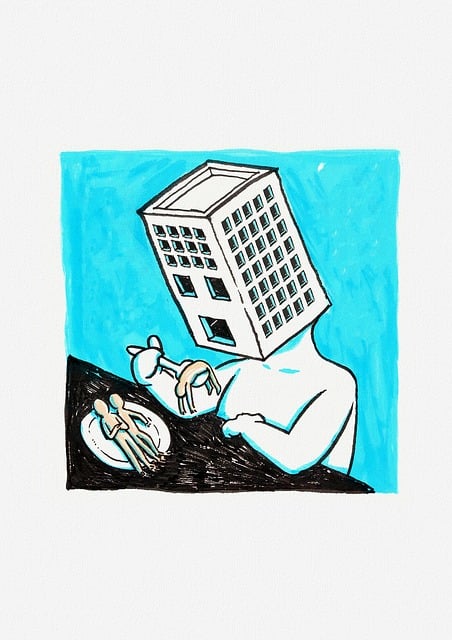In the real estate market, interest rates significantly impact demand and property values. High rates increase borrowing costs, making homes less affordable and potentially slowing down sales. They encourage saving, benefiting developers indirectly. To navigate high-interest rate environments, investors should focus on long-term value, prioritize stable properties with rental income and capital appreciation potential, diversify portfolios, refinance mortgages, stay informed about trends, and explore government incentives to mitigate risk effectively.
In today’s economic climate, understanding the interplay between real estate and interest rates is crucial. This article delves into the intricate relationship between these factors, focusing on how steeper interest rates impact real estate investments. We explore strategies for navigating high-interest rate environments, providing insights for both investors and professionals in the real estate realm. By the end, you’ll grasp the dynamics shaping the market and be equipped with tools to make informed decisions.
Understanding the Relationship Between Real Estate and Interest Rates

In the realm of real estate, interest rates play a pivotal role in shaping market dynamics. When interest rates are steep, it can significantly impact both buyers and sellers within the industry. Higher interest rates often lead to increased borrowing costs for prospective homeowners, making property acquisition more expensive. This, in turn, may slow down demand, as fewer individuals can afford to take out large mortgages. As a result, real estate markets tend to cool down during periods of heightened interest rates.
On the other hand, steep interest rates also benefit savers and investors. They encourage individuals to invest their funds in fixed-income securities like bonds, offering higher returns. This influx of savings into investment avenues can indirectly support the real estate sector by providing financing options for developers and property owners, thereby sustaining market stability even during times of elevated interest rates.
How Steeper Interest Rates Affect Real Estate Investments

Steeper interest rates can significantly impact real estate investments, making them a critical factor for any investor to consider. When interest rates rise, borrowing costs increase, which can deter potential homebuyers and investors alike. This is particularly true in the real estate market, where mortgages play a significant role in facilitating property purchases. With higher interest rates, the affordability of homes decreases, potentially slowing down sales and rental activities. As a result, real estate developers and investors may face challenges in finding tenants or selling properties at desired prices.
Moreover, steeper interest rates can influence property values. In a rising interest rate environment, the cost of financing a property’s purchase increases over time. This can lead to reduced demand for real estate assets, as individuals and businesses might opt for alternative investments with more attractive returns. Consequently, property values may experience a downward trend, affecting both investors and homeowners. However, it’s important to note that not all real estate markets respond in the same way, and factors like location, market trends, and supply and demand dynamics can mitigate the effects of interest rate fluctuations.
Strategies for Navigating High-Interest Rate Environments in Real Estate

In high-interest rate environments, real estate investors and buyers face unique challenges. One key strategy is to focus on long-term value rather than short-term gains. This means prioritizing properties with solid fundamental attributes like strong location, stable rental income, and potential for capital appreciation. By avoiding impulsive decisions driven by fleeting market fluctuations, investors can navigate these environments more effectively.
Additionally, diversifying one’s portfolio across different property types and geographic locations can mitigate risk. Refinancing existing mortgages to secure lower rates or exploring government incentives and programs designed to stimulate the real estate sector can also provide some relief. Staying informed about economic trends and market shifts allows for proactive decision-making, ensuring that investments remain sound despite interest rate hikes.






